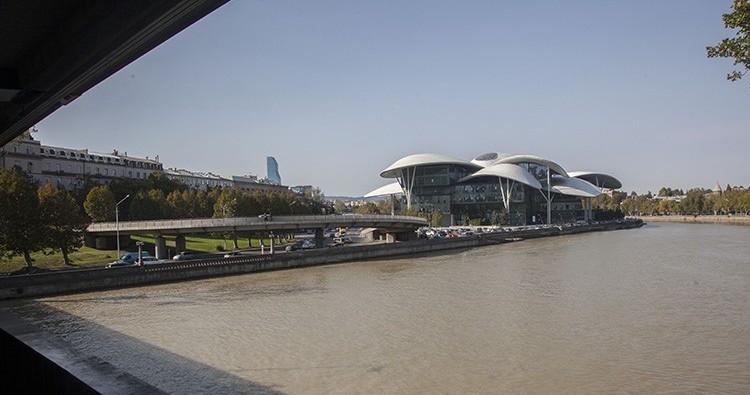Central bank: Georgia's financial sector maintaining stability, lending to economy

A latest report by the national bank of Georgia has said the country’s financial sector is maintaining stability and is lending to the economy “without interruption”. Photo: Nino Alavidze/Agenda.ge
A latest report by the national bank of Georgia has said the country’s financial sector is maintaining stability and is lending to the economy “without interruption”.
The bank said on Wednesday its inquiry had shown a majority of banks had already restored the buffers released during the shock of the Covid-19 pandemic, and were facing the threats related to geopolitical tensions in the region “with solid buffers".
The NBG also called the high growth rate of consumer loans and inflation "noteworthy", and said it was “particularly risky” for households with low income and high debt service burden.
Despite a declining trend, dollarisation [the ratio of foreign exchange deposits and loans to total deposits and loans] of loans remains one of the main challenges, it also noted.
In response to the mentioned risks and in order to promote growth of borrowers' solvency, the NBG said it had updated several requirements. In particular, the maximum term of mortgage loans issued in foreign currency has been reduced to 10 years, while the requirement of 25 percent of the loan service ratio was extended to individuals with an income of up to ₾1,500 ($529.18)”.
It became necessary to take into account the shock of the interest rate by three percentage points during the assessment of the borrower's solvency when issuing a variable-rate loan, and the maximum term of consumer loans temporarily reduced from four to three years", the NBG said.
In the real estate market, the bank has noted a trend of increasing prices and rents, which it connected to increased demand and construction costs.
It said an increase of real estate prices both in lari and dollar was observed this year, both domestically and internationally. The trend has been especially noted after the start of the pandemic, which the bank said was partly due to the transition to remote work “and therefore, the need to improve living conditions”.
In addition, demand for real estate increased as a result of increased migration into the country after the start of the war [between Russia and Ukraine]. Also, construction costs have increased, which further increases the price of real estate", the NBG said.
The central bank said the real estate market also maintained stability, however the Russia-Ukraine war "significantly increases the uncertainty in the region, which can become a source of accumulation of risks in the sector". It noted such a scenario could "significantly affect" the quality of banks' assets and become a source of financial stability risks.
 Tweet
Tweet  Share
Share